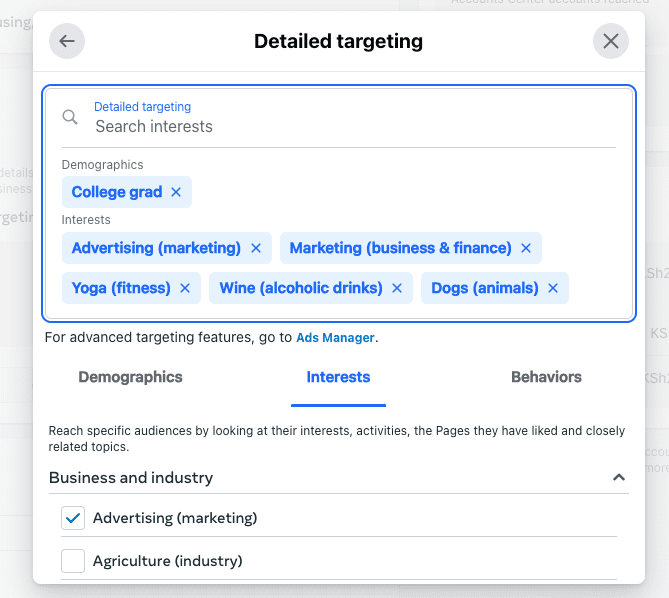
Have you ever watched an entertaining reel on Instagram and thought to yourself, “What a cool brand!”? Maybe it was an amusing cat video that, while unrelated to their product, still connected to the brand and grabbed your attention. You might have even clicked “follow.” And, a few interactions later, you found yourself buying their products.
That’s the power of social media. In fact, forecasts suggest that the value of social commerce will reach around $8.5 trillion by 2030. So if your brand isn’t leveraging social media, now is the time to start.
Social selling is all about building relationships by connecting with potential customers on a human level. But why should your sales team care?
Because engaging with your audience, sharing valuable content, and being part of the conversation builds trust and credibility among your target customers. Think of it as a long-term game. Implementing a social commerce strategy isn’t a quick fix, but it pays off in a big way.
Let’s explore how social media marketing can simplify and amplify your sales strategy.
Table of Contents
The Core Principles of Social Commerce
Perhaps the biggest contrast between selling through social media and traditional sales is that the latter often focuses on immediate results. Cold calling, direct mail, and email campaigns aim for quick conversions, but these methods can sometimes feel intrusive and may not resonate with the modern consumer.
Social selling, on the other hand, takes a more subtle and engaging approach. It focuses on attracting potential customers organically by sharing engaging content and creatively showcasing your expertise. This method is much less direct, but it draws in higher-quality prospects who are genuinely interested in your product or service and more likely to convert.
In essence, social commerce is about building long-term relationships. In the same way that it takes a sales agent multiple interactions to convert a lead, people often engage with brands online over an extended period before they make a purchase. They’ll follow, like, and share, slowly building trust and researching long before entering their credit card details.
Understanding and implementing these principles can help your sales and marketing teams adapt and ultimately drive more sales.
Simplifying the Sales Process with Social Media
Consistently providing value and engaging with your target customers online nurtures relationships that make it more likely that they will choose your brand when they are ready to buy for multiple reasons.
1. Easier Lead Generation and Prospecting
Nurturing leads who aren’t yet ready to buy your product can be costly and time-consuming. Even if you have the resources, chasing each and every prospect is inefficient and demotivating.
Furthermore, identifying warm leads doesn’t guarantee conversion if you approach them blindly. A good sales pitch understands what prospects are looking for, their spending habits, budget, buyer journey, and a lot more.
This kind of data is often hard to gather through traditional methods, but luckily, social media ecommerce is a goldmine that gives you many opportunities for lead generation and learning your prospects inside out.
Platforms such as Instagram, TikTok, and LinkedIn give you a direct line to your customers’ thoughts, preferences, and pain points and even allow you to target specific audiences based on their interests and behaviors. For example, check out some of the many targeting options that Meta Business Suite gives users when creating an ad for Facebook or Instagram.

This valuable intel helps you identify your potential customers and what they care about, allowing you to tailor everything from your social commerce content to customer service and sales outreach accordingly.
Additionally, tools such as Hootsuite and Sprout Social help monitor conversations about your brand, industry, or competitors, so that you can meaningfully engage with potential leads.
You can even integrate your social media channels with a customer relationship management (CRM) system that helps you manage and track interactions with potential leads, ensuring no prospect falls through the cracks.
In short, social commerce helps your sales team work smarter, not harder, by focusing their efforts on high-quality leads.
2. It Saves You Time and Money
Digital marketing is often praised for being more cost-effective than many traditional forms of marketing, and this advantage extends to sales as well.
In the short run, targeting your ads to users who have already engaged with your brand helps you reach a warmer audience that is more likely to convert. This reduces the cost per acquisition and maximizes the return on your advertising spend.
In the long run, effective social commerce means less money spent on brand familiarization and advertising because building a strong online presence and engaging with your audience organically grows brand recognition.
Social selling also allows your marketing team to pass more qualified, sales-ready leads to the sales department. According to Google Consumer Insights, 78% of customers spend more time researching a brand or product online than in-store.
Engaging with potential customers and nurturing relationships online lets you gather important information about their pain points and readiness to buy, making the sales process more efficient. Your sales representatives can then focus on closing deals rather than spending time on initial outreach and qualification, leading to a higher conversion rate and more deals closed in less time.
3. It Puts You In the Right Place at The Right Time
Building relationships with your audience online and establishing yourself as a trustworthy and leading brand makes you the go-to choice for potential customers or clients.
Today, social media platforms give you access to your target audience like never before, allowing you to engage with them throughout their buying journey. Ongoing engagement ensures that your brand is top of mind when your audience is finally ready to make a purchase.
On the other hand, if marketing provides the sales team with leads that are not yet ready to take the leap, there is a substantial risk that these leads, which could have become sales-ready with proper nurturing, will be lost.
Social commerce bridges this gap by maintaining continuous, meaningful interactions with your potential customers. Thus, your social commerce strategy should connect with customers through multiple touchpoints to ensure they receive the information and reassurance they need at every stage of their buyer journey.
4. It Builds Trust and Credibility
Even the most well-crafted and persuasive sales pitches will fall flat if your audience does not trust your brand. Consumers are more likely to buy from businesses they perceive as reliable, honest, and transparent. That’s why brands that build strong customer relationships through social commerce and demonstrate integrity with their actions find it much easier to convert a customer.
Aside from maintaining consistent interaction with your audience, you must also remember that social proof, such as testimonials and reviews, is one of the most powerful tools for building trust. Potential customers are reassured about the quality and reliability of your products or services when they see positive feedback from others.
Encourage satisfied customers to share their experiences on social media to create a stream of positive testimonials that act as endorsements. This enhances your brand’s credibility while also attracting new customers who trust these genuine reviews.
Engaging content and consistent interaction further solidify this trust, so share content that resonates with your audience and positions you as an authority in your field.
5. Social Commerce Simplifies The Buyer Journey

It’s natural to think of Amazon or eBay when talking about ecommerce. However, considering Facebook Marketplace reported more than 1 billion visitors each month, it might be time to focus your sales efforts on social media ecommerce.
One of the key advantages of social selling is the ability to engage in quick and direct messaging with potential customers. As mentioned earlier, today’s consumers frequently turn to social media for research and recommendations before making purchasing decisions. Real-time interactions make it easier for them to get their questions answered promptly, and this immediate access to information eliminates a lot of friction in the purchasing process.
Additionally, tools such as Instagram Shopping, Facebook Shops, and Pinterest Buyable Pins let your customers buy directly from you on social media without needing to navigate away. Providing such streamlined paths to purchase through social commerce not only enhances the customer experience but also improves the efficiency of your sales process.
6. Social Selling Helps You Spot and Tackle Issues Promptly
Remember, social media is a two-way street that lets you broadcast your message and, just as importantly, tune in to what your customers are saying about your business or product. For your sales strategy, this listening part is invaluable.
Think about all the users who voice their grievances on platforms like X (formerly Twitter), often before reaching out directly to the company. All it takes is one customer with a substantial following to tweet about an issue with your product and your brand reputation will take a big hit. Actively monitoring social media for audience sentiment helps you spot and respond promptly in such instances.
Moreover, resolving issues in a public forum shows potential customers that you handle complaints effectively which enhances their trust in your brand. Considering that 43% of customers in a US and UK consumer study said receiving excellent social media customer service is important when making a new purchase, such transparency and positive experiences can convert your on-the-fence prospects into loyal customers.
Using online listening tools for your social commerce ensures your customer service stays ahead of potential problems that could prevent your sales team from closing deals.
Do More Than Just Keep Up With Trends
As you can see from the power of social commerce demonstrated above, a good social selling strategy can supercharge both your sales and overall brand success.
At Coalition Technologies, we’ve seen firsthand how effective a well-crafted social commerce strategy can be. For example, we worked with Forest Travel, a luxury corporate travel management company, to implement a comprehensive digital search and paid social media strategy. Within seven months, their website attracted 22% more organic sessions while the organic goal conversion rate grew by 17%. Their sales team’s success also soared.
Ready to take your social media ecommerce to the next level? Get in touch with us for a free review of your social commerce strategy today.

